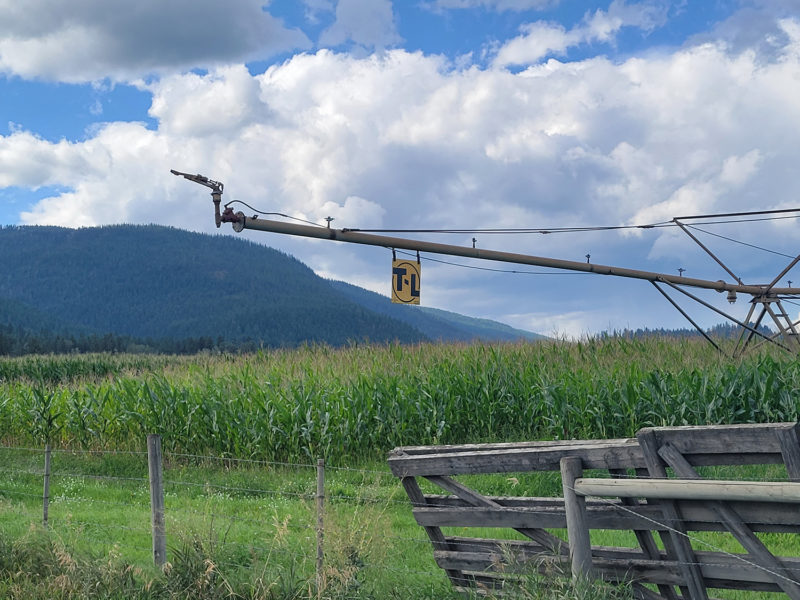VICTORIA – The province is holding fast on a March 1 deadline for existing, non-domestic groundwater users to apply for a licence despite a low response rate.
Staff from the BC Ministry of Forests, Lands, Natural Resources Operations and Rural Development have been making the rounds of farm meetings since last fall, with the result that 4,455 applications are now in the hands of government. A total of 1,654 decisions have been made.
With existing users set to lose their water rights if they don’t apply by March 1, calls are growing for the province to extend the deadline for a final time to ensure users maintain legal access to groundwater and their historic water rights.
“With only one in five historical groundwater users having applied for continued use, there are thousands of farmers, ranchers, and small business owners currently at risk of losing their access to groundwater,” BC Liberals interim leader Shirley Bond said in December in a statement backed by the BC Green party leader Sonia Furstenau.
The province expects 20,000 wells to seek licences, of which approximately 8,000 are for agricultural uses. While farmers and ranchers have a relatively high application rate, many are frustrated by an application process many growers find don’t reflect their circumstances.
A key issue is licensing to crop, a change in practice that some well owners feel binds their rights to what they’re producing now. They fear this could prevent them from accessing water in the future if a new crop or management practice requires more water.
Oliver grape grower Hans Buchler has contested the practice. He says concessions have been granted to grape growers, allowing them to claim extra water for cover crops used in vineyard management.
But he says other growers haven’t been so lucky.
“This allowance has not been extended to any of the other perennial row crops that do or can grow cover crops in the alleyways,” he says.
This underscores the inequity inherent in the new licensing system, he adds.
The province continues to urge growers to apply for a licence to their existing use, however, saying the details can be worked out later. Growers who don’t file an application by March 1 will lose their historic access to water, and be treated as new users. They’ll have to undergo a more rigorous application process, and may wind up with a smaller allocation than they would have had they secured a licence based on their historical priority.
The new licensing regime took effect in 2016. It aimed to entrench a first in time, first in right system in the province by having historic rights registered and given priority over new users. All users are also charged a fee for the use of groundwater based on volume. This fee is payable by existing users from 2016, regardless of when a licence application is made.
The province encouraged existing non-domestic groundwater users to apply with the promise of a waiver for the application fee, which starts at $250. But low uptake has resulted in three extensions of the deadline. A year ago, the province told producers there would be no further extensions.
During the first two years, more than 2,100 existing-use applications were filed. The volume plateaued in 2020 at approximately 4,000. The past 18 months have seen just 450 new applications made, with the greatest increase taking place since outreach ramped up last fall.
—With files from Tom Walker


 Soaring fertilizer prices add to cost pressures
Soaring fertilizer prices add to cost pressures